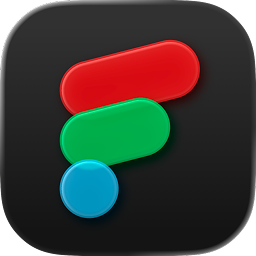Everything You NEED To Know About Calories

Losing weight is notoriously hard. There is a lot of confusing information out there about weight loss. Trendy new diets and exercise routines pop up all the time. Some tell you to remove entire food groups. Others focus on timing your meals. Some tell you to go for intense exercise, while others try to keep you at slower paces. These plans can be effective, but none of them seem to work for everyone.
The plan your doctor would probably recommend is calorie counting. In essence, this involves calculating the energy value of the foods a person eats compared to the number of calories that same person burns. If the number of calories eaten is lower than the number of calories burned the person can expect to lose weight. If the number of calories eaten is higher than the number of calories burned the person will probably gain weight.
Does calorie counting work?
This might seem overly simple, especially compared to complicated diet plans. In many ways, it is overly simple. Calorie counting alone doesn't care if the foods you eat are healthy. Calorie counting does not necessarily involve good nutrition. Still, calorie counting is one of the most popular and enduring ways to lose weight. It can help you get a general idea of the value of foods, appropriate portion sizes, and can be an important cornerstone for building your healthy lifestyle.
We know that one pound of fat is roughly equivalent to 3500 calories. Losing weight with calorie counting is a matter of math. If you're starting out with a pretty regular diet where your weight is being maintained this math is pretty easy. You need to create a 500 calorie deficit every day in order to lose one pound of fat per week.
How can you create this deficit? You can either burn MORE calories every day, eat FEWER calories, or combine both.
If you are trying to accelerate your weight loss efforts it's usually better to add more activity into your day. Relying on strict dieting alone can make you tired and unmotivated. Because exercise has a host of health benefits outside of weight loss it is usually recommended to add exercise into any weight loss plan. To kickstart your weight loss just increase your exercise calorie burn.
How do I get started?
Calorie counting can seem really complicated when you first get started. How many calories do you need to eat? How many do you burn per day? Do you only get to eat the ones you burn off with exercise? Fortunately, we can come back to some simple math to get a better understanding.
Whether you're looking to lose or to gain weight it is important to know the number of calories you burn per day. This doesn't mean just tracking your exercise, everything your body does burns calories, and those need to be counted too. Your breathing, digesting, and even thinking will burn calories. You even burn calories while you sleep. These calories that you burn even while at rest are called your Basal Metabolic Rate, or BMR.
How do I calculate my BMR?
Your BMR, or your daily calorie burn, is determined by a few factors.
Some of the most important factors in your BMR are your height, age, weight, and gender. Larger bodies have to burn more calories to sustain their basic functions. This means that heavier people burn more calories at rest, as well as taller people. Women tend to burn fewer calories than men, often because of different body compositions. Muscle needs more energy than fat in order to function, so people whose bodies are more muscle than fat will use more energy than someone the same weight, but with less muscle. As we age we also tend to burn fewer calories.
Conventional wisdom warns against eating fewer calories than your BMR. When you eat less calories than your body needs in order to function you can negatively impact your energy levels.
If you shouldn't eat fewer calories than your BMR how can you lose weight without intense exercise? Simple: you just need to burn fewer calories than your TDEE.
What is my TDEE? (Total Daily Energy Expenditure)
While your BMR is the number of calories your body would burn if you were completely at rest, your TDEE takes into account that you're NOT always at rest.
Every additional activity you do during the day beyond lying in bed will use extra energy. Everything from sitting upright to walking around to performing your daily chores will increase your calorie expenditure. We call the daily calorie burn that includes all of these other activities your Total Daily Energy Expenditure, or TDEE. Even if you work a sedentary job and spend most of your free time sitting behind a computer screen you will burn more calories than just your BMR, you have extra calories you can cut to lose weight through diet alone.
You can increase your TDEE even further through exercise. When you burn more through walking, running, cycling or going to the gym you increase the number of calories you burned and the deficit you have. That is one reason why exercise is so important when trying to lose weight. There is usually a pretty limited amount of extra food you can reduce in your diet. Even with a very strict weight loss diet your weight loss will probably be very slow. By increasing your exercise you can burn more calories and lose weight faster.
It's important to understand, though, that your TDEE does not increase with high intensity exercise. Little changes have a big impact on your daily energy expenditure. Walking and standing more often will increase your TDEE without requiring you to devote more time to specific exercise. It is easy to sneak extra exercise into your day.
How can I calculate these values?
You can calculate your daily burn a lot of different ways. You can use any number of online calculators to get these values. All you need to do is plug in your information. You age, height, weight, gender and daily activity level in a calculator can give you a pretty good picture of the calories you're burning.
If you're looking for a more accurate look at your energy burned, though, you should look into investing in a fitness tracker. Popular options like the Apple Watch will monitor your heart rate and steps all day. This will more accurately calculate your extra calorie burn from things like an afternoon walk.
To really kickstart your weight loss with intense exercise an activity tracker like FITIV Pulse is very helpful. This app will record your heart rate while you exercise and show you how hard you push yourself. When you are pushing yourself to work out harder you will burn more calories. Working out with intensity with FITIV Pulse is a great way to lose weight faster and improve your overall health. Also, calculating your exercise calories burned with your heart rate is the most accurate way of getting these values.
So, how do I lose weight?
The number of calories you burn over the day is only one half of the solution. To lose weight you also need to keep track of the calories you take in.
When you have an accurate idea of the calories you burn, you know your hard limit for the foods you eat. Accurately tracking EVERY calorie you eat and drink is the final key to weight loss. You can do this with a paper and pencil, but these days it's easiest to record your calories with a food tracking app like MyFitnessPal. When you have apps that work together, like FITIV Pulse and MyFitnessPal, you take a lot of the guesswork out of weight loss. Just make sure that you are eating less calories than you burn, and your weight will start to decrease.
If you find that you have eaten more than you burned in a day add a little bit more exercise at the end of the day to lower this gap. If you know you don't have time to be active, try to eat a little bit less. Weight loss doesn't have to be that complicated.
Sure, weight loss can seem impossible. Everyone struggles with weight at some point in their life. Still, it doesn't have to be paralysing. By calculating a few main values and getting some helpful tools in your weight loss toolbelt it can become second nature.
Looking to get started? Try FITIV Pulse today!









.avif)
.avif)
.avif)
.avif)



